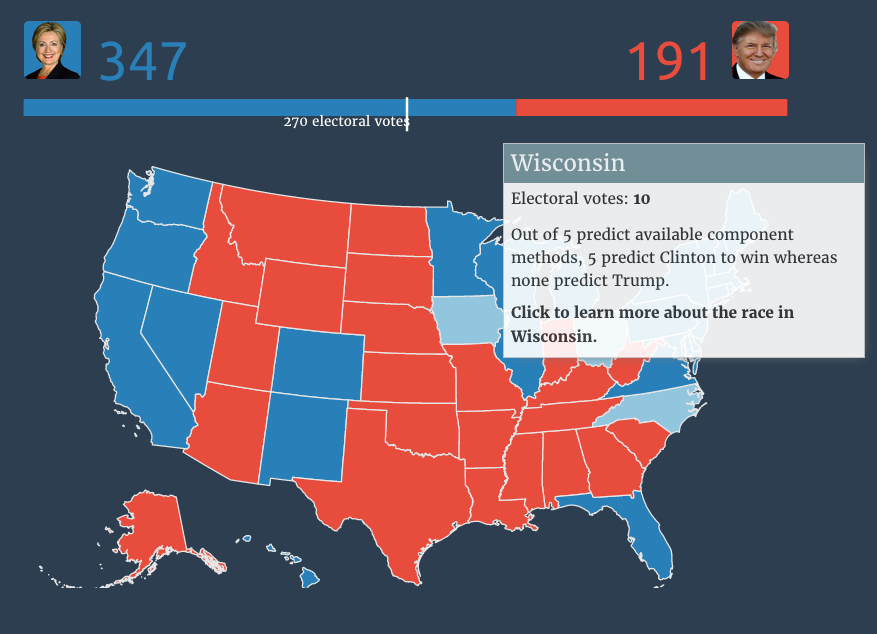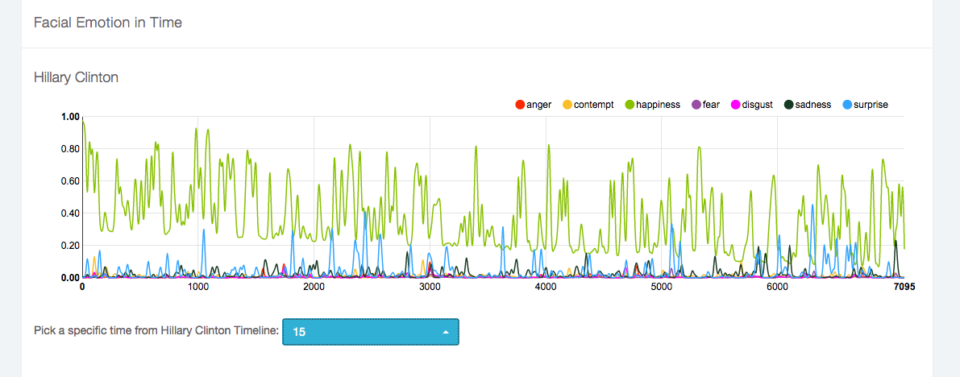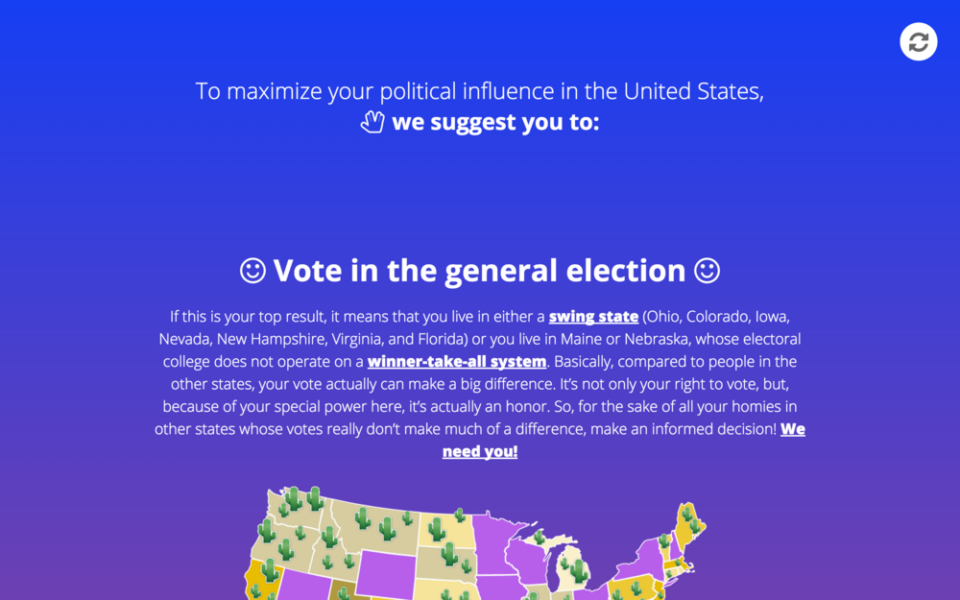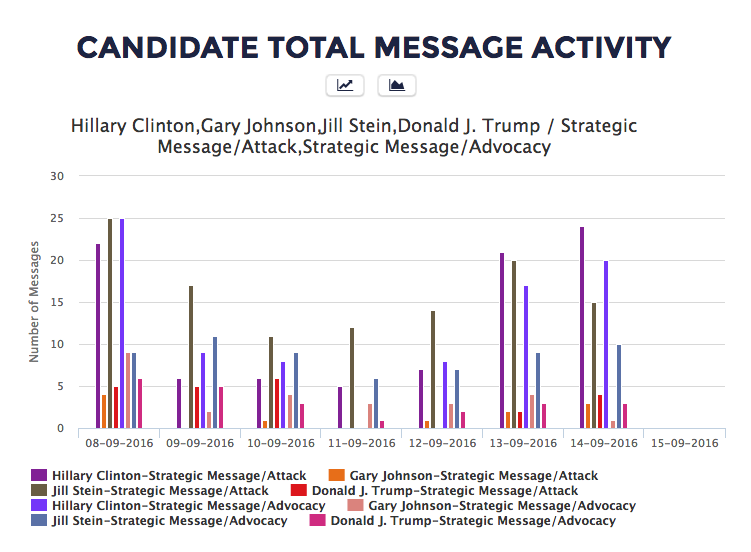Five Projects Exploring Politics & Emerging Media
September 19, 2016


Across New York City’s universities, faculty and students are exploring applications of emerging media technology in politics and elections. At this year’s NYC Media Lab Summit, expect a variety of demos in this area, from predicting electoral results to creating platforms that help raise awareness on the importance of citizen voting.
Below is a selection of projects that cover these topics — all of which will be participating in #NYCML16’s Demo Expo beginning at noon in Columbia’s Alfred Lerner Hall.
Register for #NYCML16 here. And don’t forget to register to vote.

Since 2004, PollyVote has provided automated news and visualizations based on evidence-based election forecasting methods. Andreas Graefe, a Research Fellow at Columbia University’s Tow Center for Digital Journalism joined the team in 2007. In 2016, PollyVote started to rely on automated journalism solutions to create short news stories from forecasting data. Graefe will demo recent PollyVote’s recent data research with colleague Mario Haim, a PhD candidate at LMU Munich’s Department of Communication Studies and Media Research.

What will Hillary Clinton really be thinking when she debates Donald Trump later this month? Created during the 2016 primary election, this project by Columbia Data Science Institute graduate students Carlos Espino Garcia, Diego Miguel Llarrull, Amirhossein Imani, and Xavier Gonzalez dissects the facial expressions of people in videos to best determine their moods and sentiments. On a website, users can interact with video content to see the facial analysis of whoever is in the frame. The project also incorporates natural language processing to assess the tone of the transcribed text, with tracked emotions ranging from contempt to surprise.

This interactive data visualization platform calculates how individuals can maximize their political influence during the 2016 election. Following a series of simple questions, such as state of residence, citizenship status, age and party affiliation, the website’s algorithm points to users towards ways that they specifically can get involved with the political process. The project was designed by Iris Qu of Parson’s Design & Technology program, in collaboration with NYU Studio 20 and global news outlet Fusion. It aims to encourage political education and involvement by creating intelligent and optimal solutions for voters.

Developed by Meredith Broussard, Assistant Professor at New York University’s Arthur L. Carter Journalism Institute, the Bailiwick engine allows reporters to quickly and efficiently uncover new investigative story ideas related to 2016 campaign finance data. Reporters can search for a candidate that is relevant to their audience; a simple search brings up a full financial summary, including individual and group contributions and transfers between political committees. Bailiwick also allows reporters to closely follow a candidate and receive alerts via a custom Slack bot, allowing them to find new story ideas and browse recent report filings related to a candidate’s campaign.

Today’s political reporters must cover not only speeches, campaign events, and TV ads, but also what is happening on social media. However, the sheer volume of information that flows through social media makes it challenging for journalists to report accurately and comprehensively. Illuminating 2016 is working to solve this issue by visualizing all Twitter and Facebook messages from a presidential campaign to the general public. Reporters can easily identify a candidate’s campaign messaging over a predetermined period of time, including the ability to track public comments by users regarding a candidate. Jennifer Stromer-Galley, Director for the Center for Computational and Data Science at Syracuse University’s School of Information Studies, developed this project toincreases transparency and accountability around campaigning.
Register for #NYCML16 today!
For more information regarding the #NYCML16 program, contact:
Alexis Avedisian, Communications Manager, NYC Media Lab alexis@nycmedialab.org / @nycmedialab / @holyurl